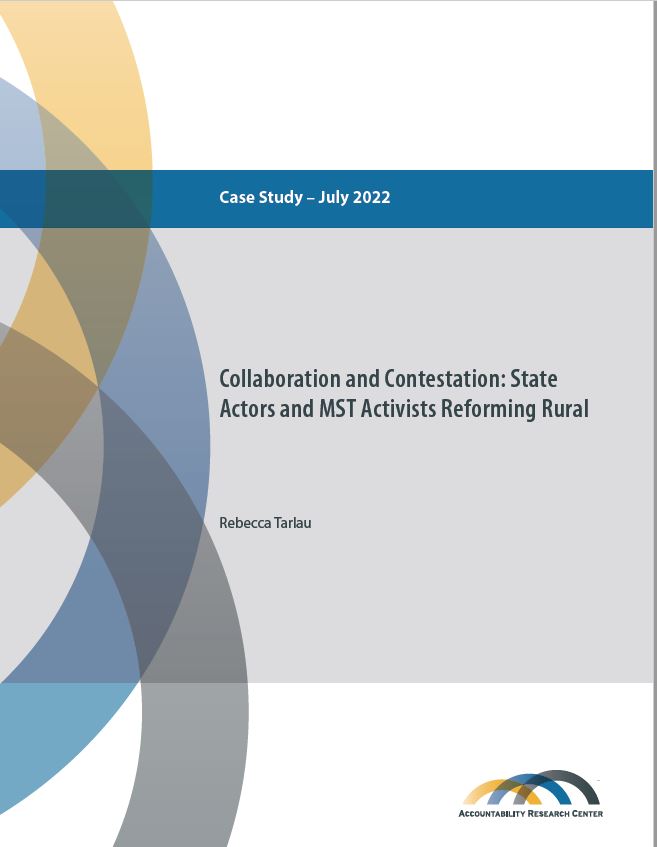[osd_social_media_sharing]

Collaboration and Contestation: State Actors and MST Activists Reforming Rural Education
Date: July 2022
Author(s): Rebecca Tarlau
Publication type:
Published by: Accountability Research Center
“Sandwich strategies” are interactive processes in which reformers in government take tangible measures that reduce the risks of citizen action from below, driving virtuous circles of mutual empowerment between pro-accountability actors in state and society. This case study is one of a set of 18 published here, which are among those included in comparative analyses of whether and how sandwich strategy initiatives drive institutional change.
The Landless Workers Movement (MST) in Brazil is known around the world for its success redistributing land. Less well known is the movement’s struggle for the right to free, rural-oriented education for all living in agrarian reform settlements. The MST’s struggle over education policy in areas of agrarian reform is a fight for both access (public schools built in MST settlements; educational programs offered specifically to activists) and control (MST influence over schools and programs). The MST has been able to participate in the co-governance of a parallel rural education system at both the federal level and in within some states.
This is a case study of a national education reform inspired by the MST, and its impact in Brazil’s northeastern state of Ceará (2003-2022). It examines two levels of openings for educational policy reform—federal and state—and the interaction between these national and subnational processes.
Despite shifting political contexts, in Ceará the MST has been able to participate in the co-governance of the public school system over more than a decade by taking advantage of multiple state openings. These include state convenings (e.g., of teachers, activists, and other educational stakeholders); state recognition of the MST as a legitimate partner; and tangible state resources (e.g., the financing of teacher training programs, covering costs to attend meetings for co-governance).
To participate in the co-governance of the rural school system, the MST has used a combination of collaborative and adversarial approaches, directly contesting claims that collaborative and contentious politics are dichotomous.
Rebecca Tarlau is an Associate Professor at The Pennsylvania State University affiliated with the Adult Education and Lifelong Learning program, the Comparative and International Education Program, and the Center for Global Workers’ Rights. Her ethnographic research agenda has three broad areas of focus: (1) theories of the state and state-society relations; (2) Social movements, labor education, and critical pedagogy; (3) Latin American education and development. She is the author of Occupying School, Occupying Land: How the Landless Workers Movement Transformed Brazilian Education (2019, Oxford University Press)
